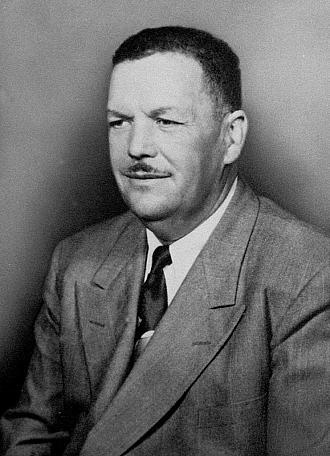

This week’s open threads will highlight the other “unsung” heroes of the Civil Rights movement. We have always talked about the Rev. Martin Luther King Jr., Medgar Evers, Malcolm X, and Rosa Parks. There were others, black and white who were involved in securing civil rights for African-Americans. This week’s thread will talk about these people.
Vernon Ferdinand Dahmer, Sr. (March 10, 1908 – January 11, 1966) was an American civil rights leader and president of the Forrest County chapter of the NAACP in Hattiesburg, Mississippi.
Vernon Dahmer was born on March 10, 1908, in the Kelly Settlement, Forrest County, Mississippi to Ellen Louvenia (Kelly) and George Washington Dahmer. George Dahmer was described as an honest, hardworking farmer of integrity. His mother Ellen Kelly was biracial because of her mother, Henrietta. Henrietta was a biracial child born out of wedlock by a white slave owner, O.B Kelly, and one of his slaves. She was given to a black family, called the McCombs.
Dahmer attended Bay Spring High School until the tenth grade; failing to graduate. He was light-skinned enough to pass as a white
Dahmer was married three times. His first wife was Winnie Laura Mott; their marriage of five years ended in divorce. In 1949, Dahmer remarried; this time to a woman named Aura Lee Smith. Unfortunately, Aura died after a long illness.
In March 1952 Dahmer married Ellie Jewell Davis, a teacher from Rose Hill, Mississippi. The couple had eight children in their family and their home in north Forrest County was part of the Kelly Settlement area. Ellie Dahmer taught for many years in Richton, Mississippi and retired in 1987 from the Forrest County school system.
Dahmer was a member of Shady Grove Baptist Church where he served as a music director and Sunday School teacher. He was the owner of a grocery store, sawmill, planing mill, and also cotton farm. His main objective was to make a living for himself and to provide work for somebody else. He would hire local individuals from the community to work for him and did not discriminate between black or white.[
Dahmer served several terms as president of the Forrest County Chapter of the National Association for the Advancement of Colored People (NAACP) and led voter registration drives in the 1960s. He kept a voter registration book in his store in late 1965 to make it easier for African Americans to register. Dahmer also helped the local African American population pay a poll tax for the right to vote. His mantra was, “If you don’t vote, you don’t count,” and those words, which he repeated on his deathbed, were used as his epitaph.
On the night of January 10, 1966, the Dahmer home was firebombed. As Ellie and her children escaped the inferno, gunshots were fired from the streets and Vernon returned fire from inside the house. He was severely burned from the waist up before he could escape and died the next day. The Dahmer home, grocery store, and car were destroyed in the fire.
The Hattiesburg area was stunned by the attack. The Chamber of Commerce under William Carey College President Dr. Ralph Noonkester led a community effort to rebuild the Dahmer home. Local and state businesses such as the Masonite Corporation, Alexander Materials, and Frierson Building Materials donated materials, local unions donated their services, and students from the University of Southern Mississippi volunteered unskilled labor.
Authorities indicted fourteen men, most with Ku Klux Klan connections, for the attack on the Dahmer home. Thirteen were brought to trial, eight on charges of arson and murder. Four were convicted and one Billie Roy Pitts (Sam Bower’s body guard) entered a guilty plea and turned state’s evidence. However three out four of those convicted were pardoned within four years. In addition, eleven of the defendants were tried on federal charges of conspiracy to intimidate Dahmer because of his civil rights activities. Former Ku Klux Klan Imperial Wizard Sam Bowers, who was believed to have ordered the murder, was tried four times, but each trial ended in a mistrial.
Based on new evidence, the state of Mississippi reopened the case and in 1998 tried Bowers for the murder of Dahmer and assault on his family. The jury convicted Bowers and the judge sentenced him to life in prison. He died in Mississippi State Penitentiary on November 5, 2006.
After Dahmer’s death, a street and a park in Hattiesburg were named in his honor. On July 26, 1986, a memorial was also dedicated at the park.
On February 3, 2007, Dahmer was posthumously honored for his heroic contributions to the Civil Rights Movement at a celebration announcing the Vernon Dahmer Collection at William Carey University in Hattiesburg. The collection was funded in part by a grant from the Mississippi Humanities Council.
